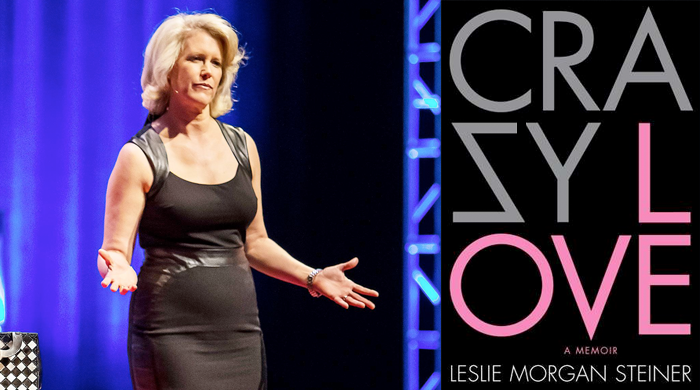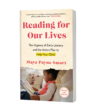“Crazy Love” by Leslie Morgan Steiner is a personal history of abuse with a social mission of redemption. Steiner recounts a series of harrowing milestones in a relationship gone wrong, illuminating why she and so many others stay with violent partners—and how friends, family, bystanders can help.
Addressing the reader directly, she writes: “If I were brave enough the first time I met you, I’d try to share what torture it is to fall in love with a good man who cannot leave a violent past behind. I’d tell you why I stayed for years, and how I finally confronted someone whose love I valued almost more than my own life. Then maybe the next time you came across a woman in an abusive relationship, instead of asking why anyone stays with a man who beats her, you’d have the empathy and courage to help her on her way.”
By that measure, “Crazy Love” succeeds. Steiner’s straightforward account of four years of abuse would make even the hardest-hearted person more aware of the emotional, physical and financial risks of severing ties with an abuser. And that understanding might spur readers’ responses when lives are on the line.
I know I won’t soon forget the attacks Steiner described. The cold muzzle of a fully loaded Colt .45 bruising her temple. Bits of onion and meat smacking her face and her hands on the steering wheel, remnants of a Big Mac thrown in protest of her driving. Hands choking her as he mouthed the words “I…own…you.”
Beyond the blows and humiliations, I’ll remember Steiner’s loyalty beyond reason and the failure of so many friends, family members and institutions to intervene. It took years of “experiments” in both fighting back and submitting for her to conclude that nothing she did made him hit her and nothing she did (short of leaving) made him stop. I’ll remember how her desperate calls for help were denied by a busy signal at the domestic violence hotline and the prescription for tranquilizers her therapist proffered instead of an evacuation plan.
This account of violent episode after violent episode educates the reader about warning signs and legal remedies, but Steiner’s character–her unique pedigree and persona–instruct as well. I was challenged by her account because she wasn’t particularly likable. Her poor-little-rich-girl tales of self loathing, drug abuse, and anorexia didn’t resonate. I found it hard to care about a character so attached to appearances and her Waspy Ivy League heritage.
When she first meets Conor, her soon-to-be abuser and husband on the subway, she tries to impress the stranger with references to her “high-powered father” and weekend jaunts to Vail. Later, she makes statements like, “my grandfather was the only Harvard senior in the class of 1929 who owned two sports cars.” She takes money from her trust fund to buy her own engagement ring because she doesn’t want the “diamond chip in a cheap gold setting” he’s likely to buy.
My negative reaction to her on the page prompted me to consider the barriers to empathy (and help) that victims of domestic violence encounter in real life. Personality, privilege, poverty [how about adding this, or even more — ?] and so many other factors color our responses to victims. Yet a victim is a victim is a victim, regardless of outsiders’ assessments of their resources or personal failings. And Steiner wasn’t a character. She was a person in desperate need of help.
In this way, “Crazy Love” reminded me that even when it looks like someone has the financial or other resources to leave a bad situation, the victim must be lacking other resources–the conviction, knowledge or support [also confidence?] to break free. Someone can be obnoxious and worthy of help. Someone can be well-connected and in need of support. And our sympathy and intervention shouldn’t be reserved for more perfect victims–people who fit our preconceived ideas about need, suffering, worthiness.
This riveting account of a years-long journey to acknowledge and end an abusive relationship bravely answers the question: Why would a woman stay with a man who hurts and threatens her? It leaves readers to ponder a crucial related question: How can we build the empathy, insight and courage required to help, rather than judge, victims of such violence.
If this post resonates with you, I bet you’ll enjoy my newsletter. I send bookish news and notes out to more than 1,000 readers weekly on Fridays. Sign up here.


